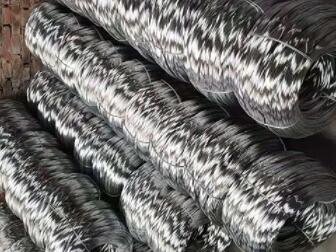Understanding Blade Wire Fencing Prices An Essential Guide
When it comes to securing properties, whether residential or agricultural, blade wire fencing emerges as a popular choice among various fencing options. Known for its durability and effectiveness in preventing unauthorized access, blade wire fencing has become a go-to solution for many. However, one of the primary concerns for those considering this type of fencing is the cost. In this article, we will explore the factors that determine blade wire fencing prices, its benefits, and what you can expect when budgeting for your fencing project.
What is Blade Wire Fencing?
Blade wire fencing, also known as razor wire fencing, consists of sharp-edged barbed wires designed to deter intruders. It is often used in high-security environments such as prisons, military bases, and commercial properties that require stringent security measures. The design typically includes wire strands that are twisted together with sharp blade-like edges, making it an effective barrier against physical trespassing.
Factors Influencing Blade Wire Fencing Prices
1. Material Quality The type of materials used in manufacturing blade wire fencing significantly affects the price. Higher quality stainless steel or galvanized steel tends to be more expensive but offers better longevity and resistance to corrosion.
2. Height and Gauge The dimensions of the fence, including its height and wire gauge, play a crucial role in pricing. Taller fences require more materials and labor, which can raise costs. Additionally, the thicker the wire gauge, the sturdier and more expensive the fence will be.
3. Installation Costs While purchasing the blade wire fencing is one part of the equation, installation also adds to the overall expense. Hiring professional installers can ensure that the fence is securely erected, adhering to safety standards. Costs for labor can vary widely based on geographical location and the complexity of the installation.
4. Length of the Fence The total perimeter that requires fencing directly influences costs. Longer stretches of blade wire will require more materials and therefore can significantly increase the overall price.
blade wire fencing price

5. Gates and Additional Features If your fencing project includes gates or other features such as fence electrification, this will add to the total cost. Custom features may require additional modifications and labor.
6. Local Regulations Some areas have stringent regulations pertaining to the installation of razor wire fencing. Compliance with these laws may involve additional costs, such as permits or modifications to meet safety standards.
Benefits of Blade Wire Fencing
Investing in blade wire fencing provides numerous benefits that can justify the expenditure.
- Enhanced Security Blade wire is one of the most secure types of fencing due to its intimidating design and sharp edges, making it an excellent deterrent against vandals and intruders.
- Long-lasting Durability When made from high-quality materials, blade wire fencing can withstand harsh weather conditions and last for many years with minimal maintenance.
- Cost-Effective in the Long Run While the initial investment may be higher than other fencing options, the longevity and reduced need for repairs or replacements can make blade wire fencing a more economical choice over time.
Conclusion
When considering blade wire fencing for your property, understanding the various factors that influence the prices is crucial. While the costs can range significantly based on material, height, installation, and other elements, the investment pays off in terms of security and durability. By weighing the options carefully and possibly consulting with professionals in the industry, you can ensure that you select the right type of blade wire fencing that meets your needs and budget. Ultimately, the peace of mind that comes with enhanced security is invaluable.

















